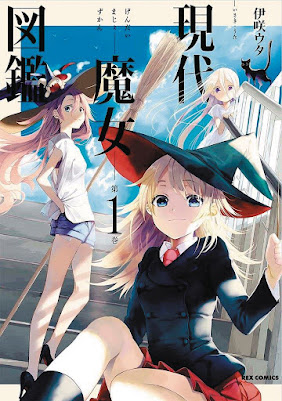You read that title correctly. This is a reincarnation isekai about someone reincarnated as a literal vending machine. And get this - the author sticks to this premise.
The protagonist is a vending machine, and he can only do what vending machines do. That is, dispense products in exchange for money. There is one exception, an ability called "Force Field" that he uses in self-defense, but that is it. The protagonist, who is named "Boxxo" in his new life, is a literal machine. He cannot move on his own, cannot speak except in a handful of stock phrases such as "Welcome" and "Insert Coins", and can't take any action other than dispensing and restocking products. To my surprise, the author does a lot with this premise.
First, he acknowledges just how ridiculous this premise is. Boxxo reflects on the strangeness of his situation, and that becomes fuel for jokes on a couple of occasions. One such occasion is when he considers whether his new life is a divine reward or punishment. He was a vending machine fanatic in his previous life, and even died trying to prevent vending machine from crashing (it crushed him), so is becoming a vending machine a good thing or a bad thing? Another occasion is during the obligatory hot springs episode, and he remarks that such a situation doesn't do anything for him, because he is a vending machine, and physically can't get aroused.
But the author also shows that this story can be serious.
You see, Boxxo is a living creature, and thus requires sustenance like any other living creature. In his case, his food consists of coins. He "eats" the money people put into him. So, over time, the quantity of silver coins in his new hometown decreases. No one is emptying him of coins, after all. So, there is a whole chapter devoted to this currency shortage that he unwittingly created.
Another serious scenario is when he is recruited to join a raid on a monster lair. No, he doesn't do any fighting. He is a vending machine. He can't even dispense his products by firing them like projectiles. He contributes by providing tasty food, fresh water, first aid supplies, etc. Everything he does is logistics support. He ends up providing a key non-combat assist in the boss fight, as well as guarding the wounded. This, then, signals to hunters that he is a very valuable asset in their line of business, and potentially worth stealing.
This story is mostly an episodic slice-of-life sort of story. There is a legitimate progression of events. Time passes, and one event leads to another, but it is a loose sort of thing.
There is only one thing that I dislike about this story. There is chapter that focuses on Boxxo providing "adult items" for a woman who runs "a business of the night". That, by itself, is not what I dislike. It adds another dimension to the town the story takes place in and to the narrative. It is a serious scene, not given to immature jokes, and it deals with the aftermath of a major story event. It fits with the premise of a living and magical vending machine. What I dislike is what comes after this.
Certain events that follow this are suspiciously similar to the harem antics that take place in other isekai stories. These are not funny. They take time away from the idea of a sapient vending machine's life. In terms of silliness, they are a bridge too far. There is also a point of contradiction.
Because of this woman, Shirley, Boxxo flip-flops between "I cannot be aroused because I am a machine" and "my circuits are overheating". To the author's credit, he does lampshade this. Evidently, Boxxo cannot be aroused because he is a machine, but because he remembers being a human man, he can intellectually appreciate how sexy Shirley is, and thus he "thinks" aroused instead of "feel" aroused. In either case, the whole thing feels pointless.
Trickster Eric Novels gives "Reborn as a Vending Machine, Now I Wander the Dungeon. Volume 1" a B+
Click here for my next book review: The Wee Free Men
Click here for my previous book review: The Demon Prince of Momochi House - volume 1
Brian Wilkerson is a independent novelist, freelance book reviewer, and writing advice blogger. He studied at the University of Minnesota and came away with bachelor degrees in English Literature and History (Classical Mediterranean Period concentration).
His fantasy series, Journey to Chaos, is currently available on Amazon as an ebook or paperback.




